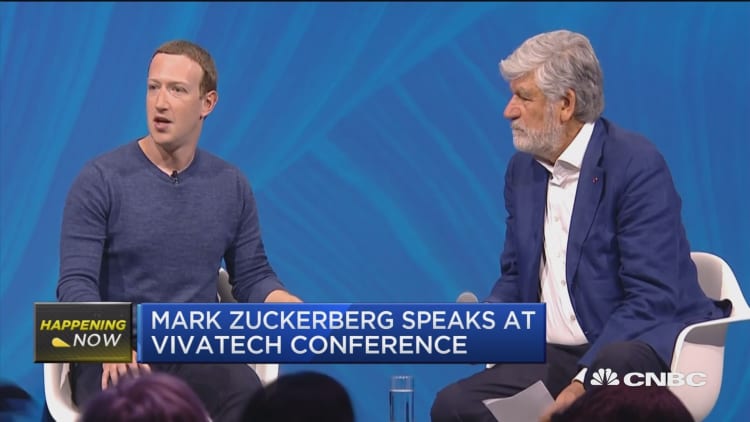Facebook touted a new political ad archive this week as a way to improve accountability and transparency on the platform. Along with that announcement, the company said it will create a tool that third-party groups can use to access the archive's data.
For Facebook, this is murky territory, because giving outside app developers access to its network is what got the company into so much trouble in the first place, and is a big reason why it needed to change its approach to political ads.
Raj Goel, the chief technology officer at Brainlink and a cyber civil rights advocate, said that the only way Facebook can show it's serious is by letting neutral parties (sort of like auditors) analyze the application programming interface (API) and make sure that it's safe.
"The billion-dollar question is whether or not Facebook will invite objective third parties, like the Electronic Frontier Foundation, to examine the system," Goel said. "That would lend it a lot more credibility and a higher trust factor."
Facebook 's new archive includes data about any ad that falls under the political umbrella, whether it's tied to an election or an issue. When users click through to a label on the ad, they will be taken to the archive, where they can view who's behind the ad and how much was spent on it. The archive will also include aggregate data about the age, location and gender of users who viewed the ads.
On a conference call with reporters on Thursday, Rob Leathern, a product director at Facebook, said the company is in the process of building an API to accompany the political ad archive.

"Outside experts, researchers and academics can help by analyzing political advertising on Facebook," Leathern said. "That's why we are working closely with our newly formed election research commission and other stakeholders to launch an API for the archive."
The API would give certain people deeper access to the data in the ad archive, but Facebook isn't saying exactly who will be admitted.
"We are figuring these things out right now in conjunction with a number of partners who are very interested in getting API access," said Steve Satterfield, Facebook's director of privacy and public policy. "We are excited about the prospect of building this tool because we will give watchdog groups, researchers, academics and others the kind of robust access to the archive that they have been asking for."
Goel said the archive is a decent concept but could be ripe for abuse. He suspects the greater purpose of the tool is to give Facebook another way to show that it's going after the bots and meddlers, like Russia's Internet Research Agency.
"It is more of a means of deflecting attention from the inaction or action of the past," Goel said. "Right now it just sounds like Facebook is throwing unvetted, untested technology at a problem and calling it fixed."
Facebook's latest scandal centered around developer Aleksandr Kogan, who had access to user data and sold it to external research firm Cambridge Analytica. Cambridge Analytica reportedly used it to shape campaign strategy for President Donald Trump during the 2016 election.
In March, Facebook suspended Cambridge Analytica from its platform. Kogan has argued his data-gathering app, Thisisyourdigitallife, adhered to Facebook's terms and conditions at the time that it gathered and sold user data.
Facebook has "ignored best practices, they've ignored safety warnings," Goel said. "Now they want credit and accolades for cleaning up their own mess."


